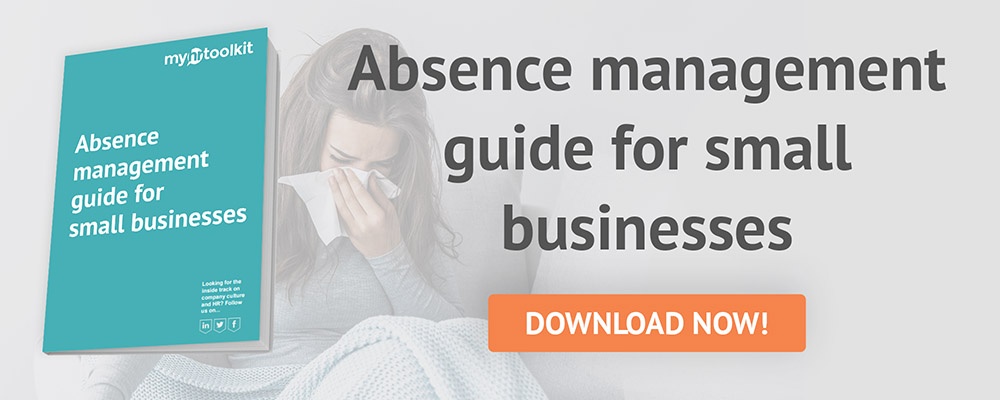There will always be times when employees are absent from work. When an employee is taking frequent absences without good explanation, however, this may indicate that absenteeism is an issue. Read on to find key tips on how to reduce absenteeism at work for the benefits of your staff and organisation.
What is absenteeism?
Absenteeism refers to staff taking sick leave regularly without good reason. When a member of staff takes unplanned absences frequently, this can leave the rest of their team or the whole business in a difficult situation. Ultimately, absenteeism lowers productivity and causes stress for others over time. So, unless there is a good reason why someone is taking time off, such as a disability (in which case, you can better plan for potential absence), absenteeism can be culturally and financially damaging.
How to reduce absenteeism
To learn how to reduce absenteeism in your organisation, check out the following tips:
Make sure your absence policies are clear and accessible

Staff may not remember where to find your absence guidelines – or even that they exist! Communicating about your company policies regularly and keeping them in an accessible place will help everyone understand how sickness and other forms of absence are handled in your organisation.
Want to improve staff access to documentation while keeping things secure? Check out our HR document management feature.
Address potential absenteeism proactively and sensitively
Don't wait until formal procedures are required; talking to your employees as soon as they return from an absence can help nip absenteeism in the bud. A return to work interview is a great opportunity for an informal chat about the absence that supports genuinely ill employees return to work while discouraging absenteeism. Find out more about how to do this by heading over to our blog post on how to discuss absenteeism with an employee.
Measure and record absence to detect absenteeism

If absenteeism is becoming an issue, you'll need the records to prove it for any formal disciplinary procedures. In addition to this, recording absences using absence management software makes it much easier to have an overview of absence in your organisation, keep your records and documents organised, and detect patterns that may indicate absenteeism.
Be proactive about disability disclosure
Frequent short-term absences may be connected to a disability. When you're aware that a staff member has a disability, you can better accommodate them. This can lead to a lower likelihood of absence as their needs are being met.
In this vein, encouraging disclosure is important. This will mean that discussions are clearer and more productive for everyone involved when absence is related to disability. However, disability can also be a sensitive topic, so it's important to maintain a careful, non-judgmental approach. Ultimately, it's up to the employee to disclose a disability, but you can help by being proactive and positive.
Learn more: Can employers ask employees if they are disabled or have a medical condition?
Consider flexible working to reduce absenteeism
Everyone's lifestyles are different; flexible working is a great way to ensure people work in a way that suits their schedule and responsibilities. This could include flexitime (where everyone works set core hours but decides their start and finish times), working from home, or compressed hours (working the same number of hours over fewer days).
Flexible working helps with absence and absenteeism because there's less reason for someone to take unplanned absence when they don't need to, for example for dealing with childcare arrangements or booking an appointment.
Keep an eye out for presenteeism
There's an opposite side to the absenteeism coin, which can be just as damaging for productivity and morale: presenteeism. Presenteeism occurs when a member of staff is at work when they are sick enough to be taking time off. Find out more about how to tackle this in our blog post about presenteeism in UK workplaces.
Read more from the myhrtoolkit blog

Written by Camille Brouard
Camille is a Senior Marketing Executive for myhrtoolkit who writes on topics including HR technology, workplace culture, leave management, diversity, and mental health at work.


 Holiday Planner
Holiday Planner Absence Management
Absence Management Performance Management
Performance Management Staff Management
Staff Management Document Management
Document Management Reporting
Reporting Health and Safety Management
Health and Safety Management Task Management
Task Management Security Centre
Security Centre Self Service
Self Service Mobile
Mobile




